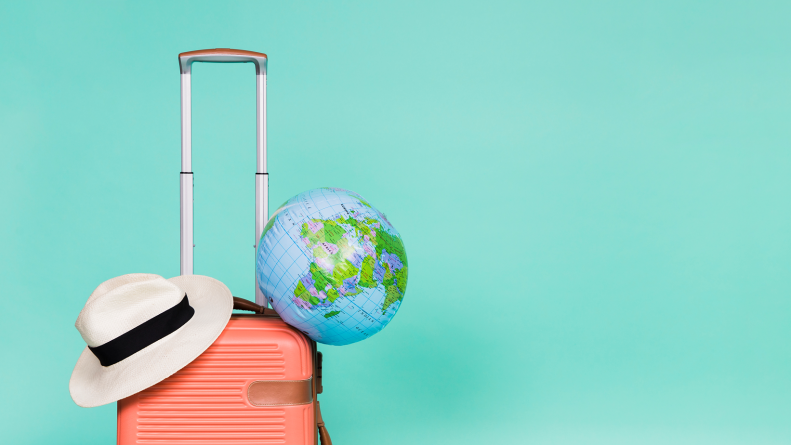When it comes to which medical supplies to pack in a travel bag, there are multiple things to consider. If you’re planning to get away this season, here’s the supplies you should take with you!
Pack Safe, Pack Smart
Traveling is a great way to see new places, experience new cultures, and try new things. However, it’s important to be prepared for anything, especially when it comes to your health. Surveys show that 85% of travelers express some degree of precautionary safety, and find value in taking safe measures before an expedition. Having these materials handy will help keep you safe, healthy, and ready for most situations.
Medical Supplies to Pack in a Travel Bag
- Pain relievers: Acetaminophen, ibuprofen, and aspirin are all good options for pain relief.
- Antihistamines: If you’re prone to allergies, pack an antihistamine like diphenhydramine or loratadine.
- Motion sickness medication: If you get motion sickness, pack a medication like Dramamine or Bonine.
- Diarrhea medication: If you experience diarrhea, or are sensitive to certain foods, pack a medication like Imodium or Pepto-Bismol.
- Antacids: Tums or Rolaids are a great option to combat heartburn and/or indigestion.
- First-aid supplies: Bandages, antibiotic ointment, and sterile gauze pads are all essential first-aid supplies.
- Water purification tablets: If you’re traveling to a country where the water isn’t safe to drink, pack water purification tablets.
- Sunscreen: Sunscreen is important for protecting your skin from the sun’s harmful rays.
- Insect repellent: Insect repellent can help protect you from mosquitoes, ticks, and other pests that may carry diseases.
Pack for Your Destination
In addition to these basic medical supplies to pack in a travel bag, you may also want to pack other items tailored for your destination and activities. For example, if you’re traveling to a tropical destination, items like malaria medication and anti-fungal cream may be ideal. If you’ll be hiking or camping in the mountains, you may want to pack a first-aid kit that includes items like splints, bandages, and antibiotic ointment.
As an added precaution, it’s also a good idea to pack a copy of your medical history and any prescription medication you take. If you do get sick or injured while you’re traveling, having this information with you can significantly come in handy!
Additional Tips for Travelers
- Check the local laws and customs: Before you travel, it’s important to know the local laws, as some countries have strict rules about what medications can be brought in.
- Keep your medications in their original containers: This will help avoid any problems at customs when checking in or going through security.
- Label your medications with your name and dosage: If you lose your medication or need a refill while you’re traveling, this tip is especially helpful.
- Store your medications in a cool, dry place: This will help prevent them from spoiling, especially if you will be braving the elements.
- Update your travel insurance (if applicable): Make sure that your travel insurance covers medical expenses while you’re away.
- Be prepared for the unexpected: It’s always a good idea to expect (and be ready for) the unexpected, especially when you’re traveling!
![NL Wordmark [Gradient]](https://www.nextlevelurgentcare.com/wp-content/uploads/elementor/thumbs/NL-Wordmark-Gradient-7fm1iv6f0zylwqrxpy8kifrnrzsluqzzzofvqvs6smo.png)
